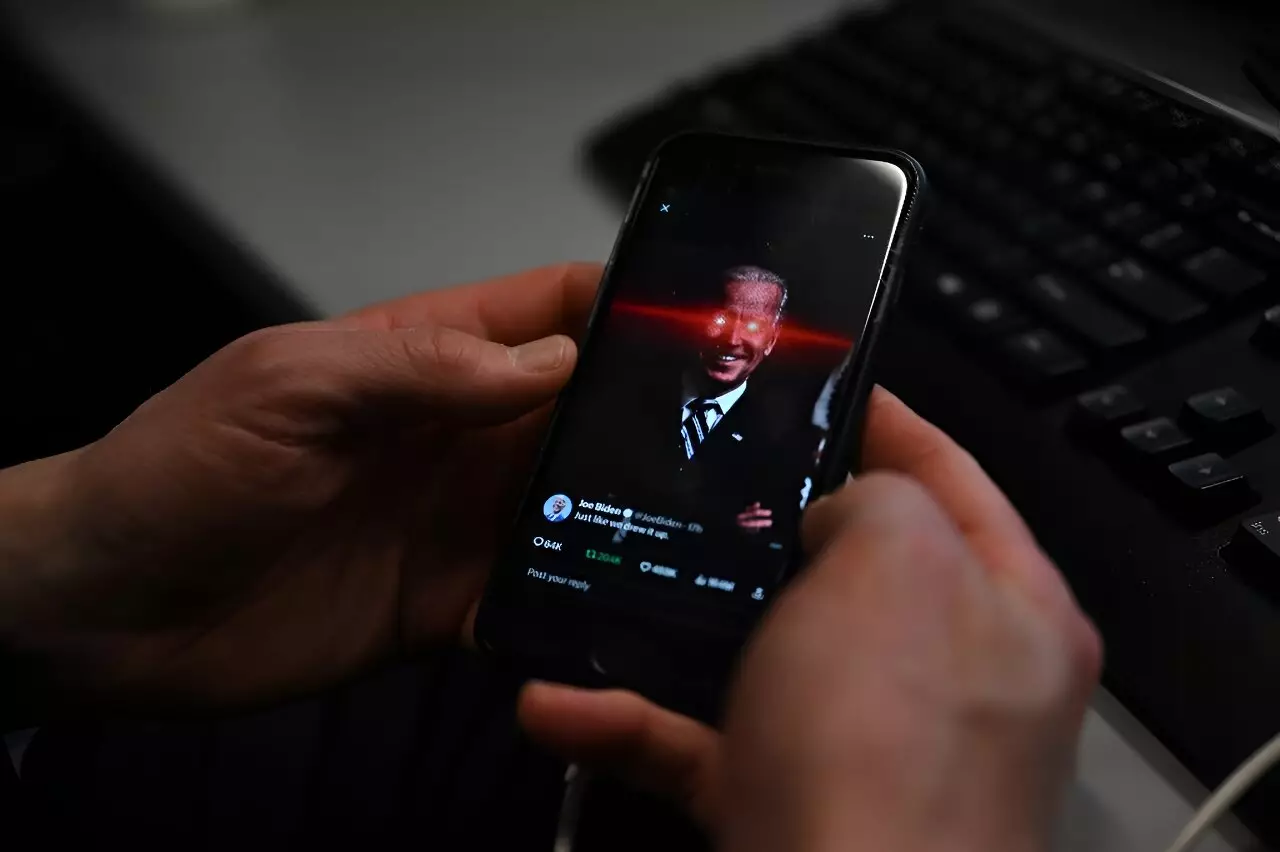TikTok, the Chinese-owned social media platform, has once again found itself in the center of a heated debate, this time due to the debut of US President Joe Biden on the platform. The video, posted during the Super Bowl, was aimed at reaching younger voters and featured a reference to a popular Biden alter-ego meme. However, the use of TikTok by the President has faced criticism from Republicans who claim that the app poses a national security risk. This article delves into the controversy surrounding Biden’s TikTok presence, exploring both the concerns raised and the strategic motives behind the campaign’s decision.
The main source of controversy surrounding Biden’s TikTok debut stems from the fact that the app is officially considered a security risk by the US government. TikTok’s Chinese ownership has raised suspicions that it may harvest user data on behalf of Beijing. The ban on TikTok’s use on US federal government devices further highlights the severity of these concerns. Even the White House, while acknowledging Biden’s use of TikTok, admitted that national security concerns persist. National Security Council spokesman John Kirby explicitly stated that there had been no change in policy regarding TikTok’s usage on government devices.
Beyond security concerns, TikTok has been accused by a wide range of US politicians of being a propaganda tool for the Chinese Communist Party. These allegations have been adamantly denied by TikTok’s parent company, ByteDance. Republican Senator Joni Ernst criticized the Biden campaign for joining what she refers to as the “CCP’s dangerous propaganda app,” while Republican Representative Darrell Issa pointed out the apparent inconsistency between the White House’s ban on TikTok and the Biden campaign’s decision to use the platform. Such criticisms highlight the political implications of Biden’s TikTok presence and the divisive nature of the app within the US political landscape.
In the face of intense scrutiny and criticism, Biden’s campaign has evidently chosen to engage with TikTok as a means to appeal to younger voters. With a likely November clash against Republican former president Donald Trump looming, the campaign sees TikTok as a valuable platform to reach this demographic. Additionally, the campaign hopes that social media posts, like the TikTok video, will help mitigate concerns over Biden’s age, which have become increasingly prominent since the release of a special counsel report describing him as an “elderly man with a poor memory.”
Biden’s TikTok debut video, titled “lol hey guys,” adopts a light-hearted tone, covering various topics from politics to the NFL championship game. In a playful response to a right-wing conspiracy theory, Biden jokes about pop star Taylor Swift endorsing him due to an alleged rigging of the game. The video also features the “Dark Brandon” meme, portraying Biden with glowing red eyes and a big grin, symbolizing his perceived super-powers according to Democrats. The video quickly gained popularity, amassing over 5 million views and counting.
The Biden campaign sees the exploration of new media, like TikTok, as a crucial aspect of its communication strategy. This is reflected in the fact that Biden has held significantly fewer press conferences compared to his predecessors. Rather than relying solely on traditional media channels, the campaign seeks to embrace innovative ways to engage with voters. Rob Flaherty, the Biden campaign deputy manager, expressed satisfaction with the President’s TikTok debut, attributing its success to their commitment in finding new and creative methods of voter outreach. White House Press Secretary Karine Jean-Pierre also acknowledged this rationale, stating that the campaign’s focus on new media partly explains the reduced number of press conferences held by President Biden.
Joe Biden’s TikTok debut has ignited a debate surrounding the security risks associated with the Chinese-owned platform and the strategic motives of the Biden campaign. While security concerns persist, the campaign’s decision to engage with TikTok underscores its determination to capture the attention of younger voters and adapt to the changing landscape of political communication. As the controversy surrounding TikTok continues, it remains to be seen how the Biden administration will navigate these challenges and what impact this unconventional approach to voter outreach will have on future campaigns.


Leave a Reply